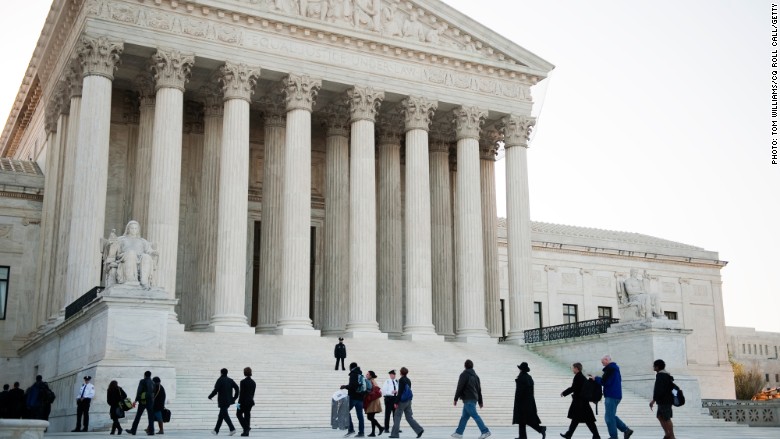
The Department of Justice is asking the Supreme Court to abandon its case against Microsoft over international data privacy.
A new law signed by President Donald Trump last week answers the legal question at the heart of Microsoft's case, the DOJ says. So the case "is now moot," the department said in a court filing posted Saturday.
Microsoft's legal battle began in 2013, when it refused to hand over emails stored on a server in Ireland to US officials who were investigating drug trafficking. Microsoft argued at the time that sharing data stored abroad could violate international treaties and policies, and there was no law on the books to provide any clarity.
That changed with the The Cloud Act, which was tucked into the spending bill that Trump signed March 23.
The act establishes a legal pathway for the United States to form agreements with other nations that make it easier for law enforcement to collect data stored on foreign soil.
The measure was supported by major players in the tech industry, but has been criticized by privacy and civil liberties advocates.
Related: Microsoft argues data privacy case is one for Congress to decide
Microsoft (MSFT) cheered the new law, saying the Cloud Act provides the legal clarity the company sought.
The company's president and chief legal officer, Brad Smith, said in a blog post that the Cloud Act is a "good compromise" that addresses law enforcement needs while also ensuring "appropriate protections for privacy and human rights."
When oral arguments were heard last month, justices urged Congress to intervene and address the matter with new legislation.
Related: IBM and Microsoft battle over top workplace diversity exec
Republican Senator Orrin Hatch led the charge, and lawmakers on both sides of the aisle supported his Cloud Act.
But advocacy groups including Amnesty International and Human Rights Watch are wary.
They opposed the Cloud Act, arguing the law would not ensure the United States sufficiently vets requests from other countries. They fear the United States could wind up handing over data to another country that will be used in bad faith, a post written by representatives for the ACLU and Amnesty International argues.

